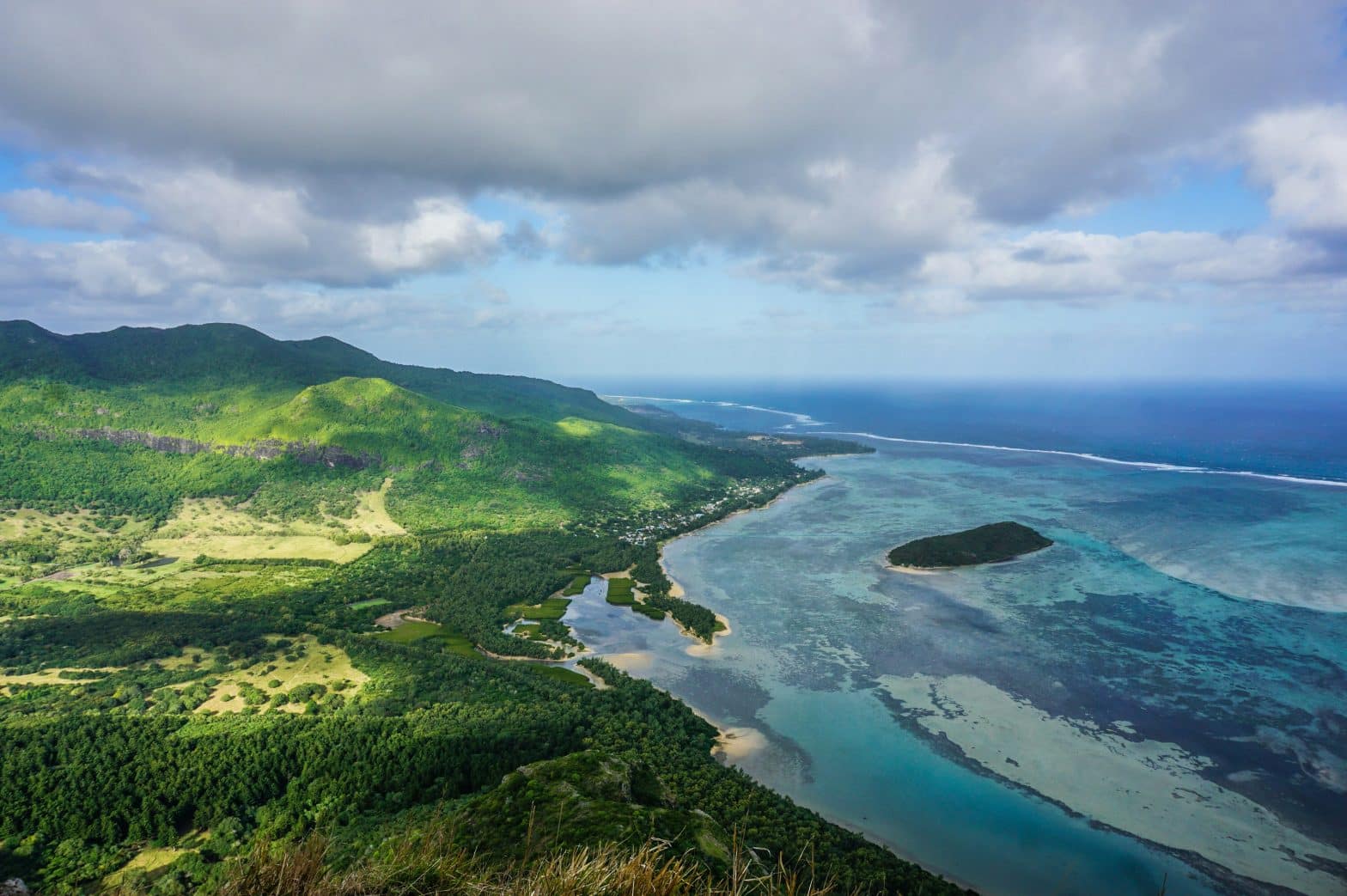Have you discovered Mauritius on holiday or a business trip? Are you increasingly attracted by the idea of moving there? Many expats have made this choice, charmed by the quality of life offered by this little corner of paradise.
In the heart of the Indian Ocean, moving to Mauritius means living in the sun, just a stone’s throw from a magnificent coastline. But moving abroad also means administrative procedures, budgeting and organising your move.
Formalities, where to live, cost of living, local culture … in this guide, we share everything you need to know to make your move to Mauritius a success!
Living in Mauritius: the pros and cons
Pros
- A (truly) welcoming and warm population, very open to expatriates
- Residents are generally bilingual (English and French)
- Economic stability and a dynamic job market
- Tax rate of 15%, which is very advantageous
- Relatively affordable cost of living considering the quality of life
- 330 km of coastline protected by a lagoon and a coral reef…and that’s not all!
- Temperate tropical climate all year round
Disadvantages
- Administration still very focused on paperwork … there is a noticeable lack of computerisation, although efforts are beginning to be made
- Urban planning is sometimes … paradoxical. On the one hand, there are idyllic coastlines and, on the other, unfinished buildings and often inconsistent urban development
- Mauritius remains geographically isolated; for example, it takes 12 hours to fly to Europe
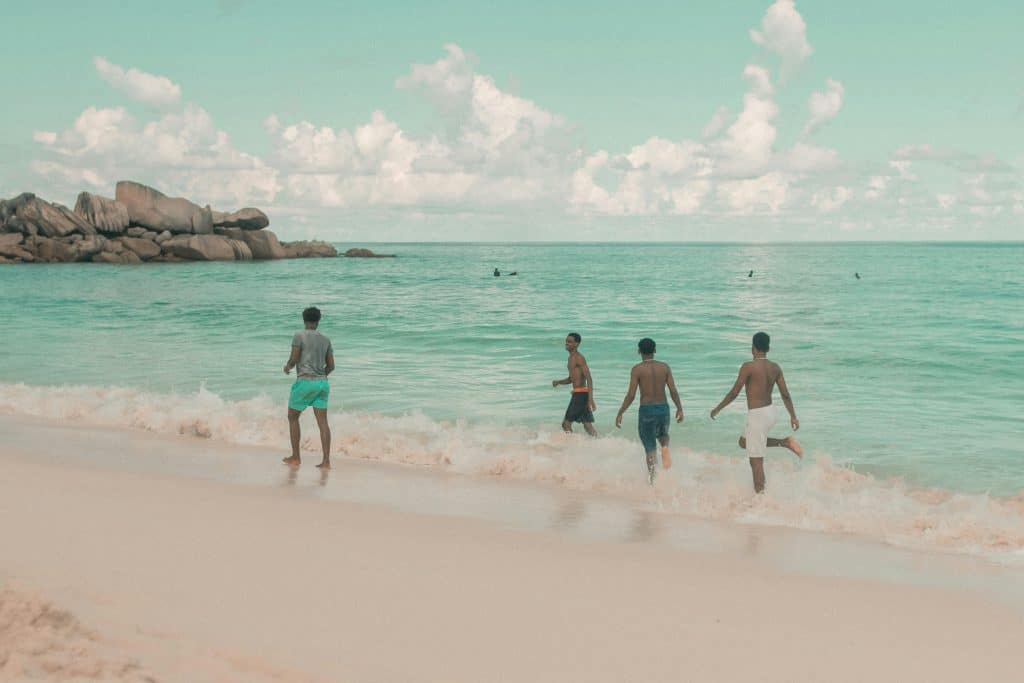
Administrative procedures for settling in Mauritius
Applying for the right visa
To stay in Mauritius for more than three months, foreign nationals must obtain a residence permit. Different types of permits are available:
- Occupation Permits: these are both long-term residence permits and work permits for working in Mauritius. There are three types:
Professional: this visa is for expatriates who are employed by a local organisation and have an employment contract;
Self-employed: visa for self-employed workers (sole traders and professionals) granted to expatriates who want to set up a business;
Investor: for investors and entrepreneurs who wish to set up a business and recruit employees.
- The retired residence permit (RPRE): a specific visa for foreign nationals over the age of 50 who wish to live in Mauritius without working.
- The Young Professional Occupation Permit (YPOP): for students who wish to pursue higher education in Mauritius (valid for three years).
A national can also obtain a permanent residence permit if they invest a minimum of US$375,000 (approximately £260,000) in real estate or a professional structure.
Good to know: after three years with an Occupation Permit or a retired residence permit, expatriates can apply for a permanent residence permit, valid for 20 years.
Obtaining a tax identification number
To become a Mauritian tax resident, you must then apply for a Mauritian tax number, known as a Tax Account Number (TAN) in the country.
The process is simple, as you only need to apply on the official website of the Mauritius Revenue Authority (MRA).
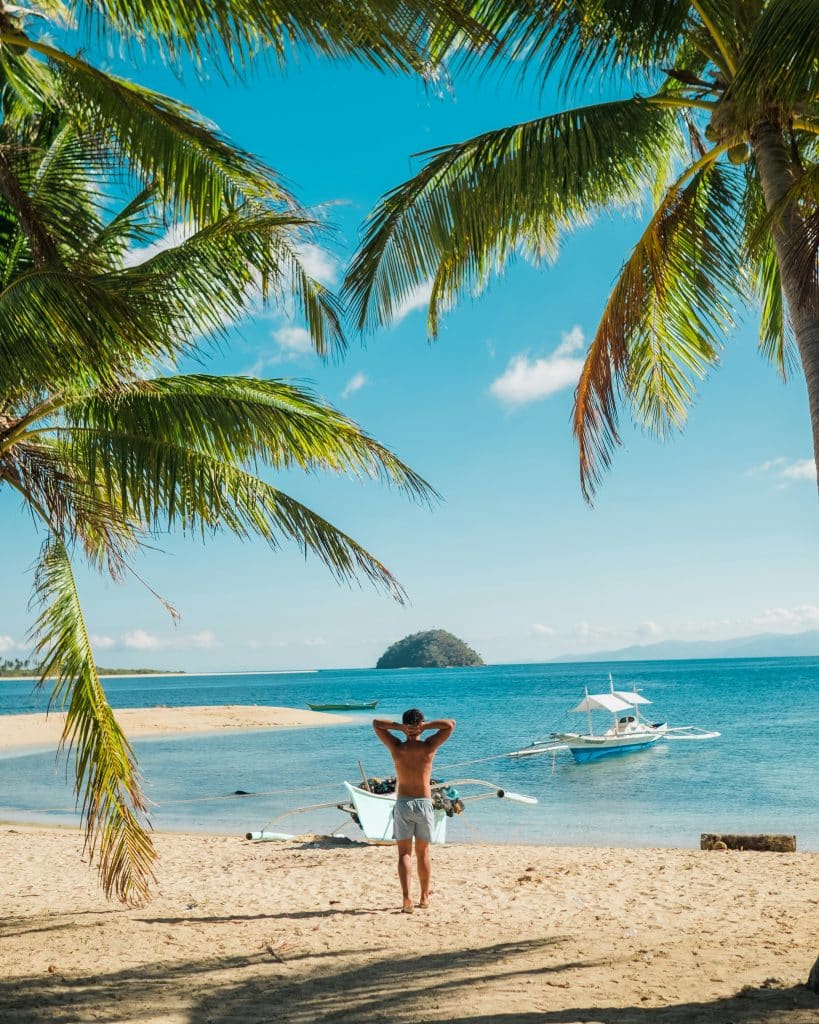
Opening a bank account
We recommend opening a local bank account to facilitate your financial transactions. The bank will ask you for several documents, including your passport or identity card, a copy of your work permit and proof of residence.
Among the most reliable banks are:
- Mauritius Commercial Bank (MCB)
- State Bank of Mauritius (SBM)
- Bank One
Where to live as an expatriate?
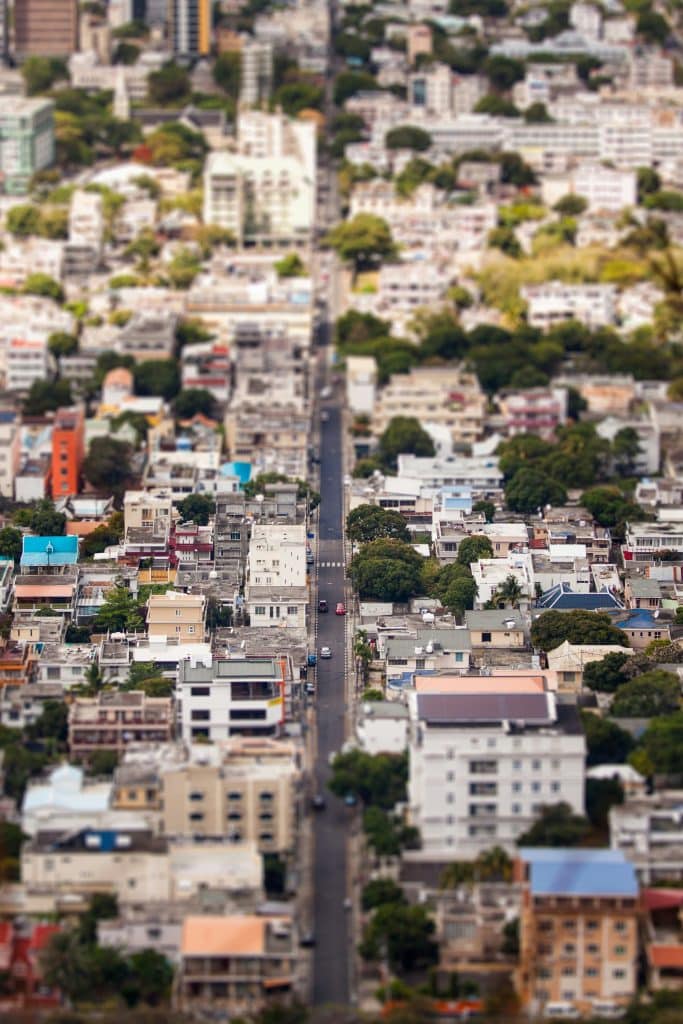
When moving abroad, most people choose to settle on the coast. The north and west are particularly popular with French and other European expatriates, especially the towns of Tamarin and Flic en Flac. There are many shops and a strong French- and English-speaking community.
The economic heart of the island is located in the north-central region, in cities such as Port Louis (the capital), Curepipe and Grand Baie.
The south of the country remains more ‘authentic’ and less developed than the north. However, some cities such as Mahébourg attract foreigners with their idyllic setting. However, it should be noted that telecommunications infrastructure is sometimes limited in outlying areas: 4G may not be available outside urban areas.
How to find accommodation
You can use local estate agents or search for yourself on specialised websites. Several platforms are widely used, including:
- LexpressProperty
- PropertyCloud.mu
- MyProperty.mu
Depending on your preferences, you can opt for an apartment, a townhouse or a villa.
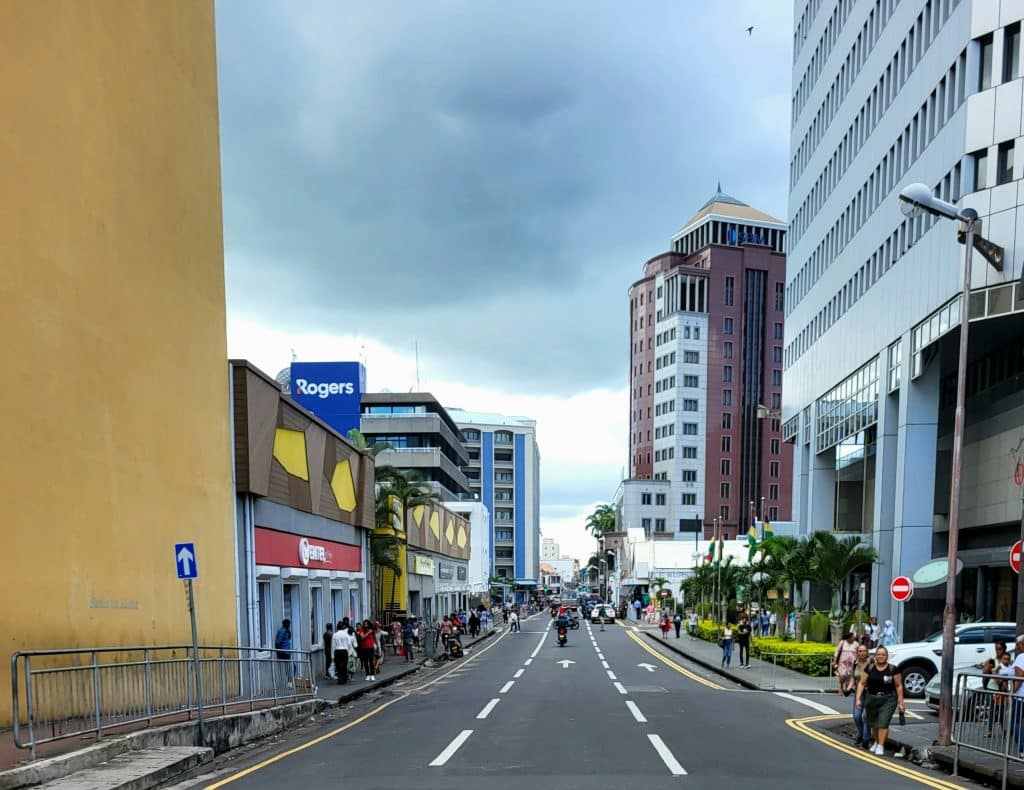
Average rent in Mauritius
Housing prices vary according to size and location. Here are some indicative averages:
- 1-bedroom apartment in the city centre: MUR 17,280 (Mauritian rupees), or €335/£280
- 1-bedroom apartment outside the city centre: MUR 10,800 (€210/£180)
- 2-bedroom villa by the sea: MUR 110,000/month (€2,150/£1,800)
- 2-bedroom villa inland: MUR 90,000/month (€1,750/£1,500)
Are there any dangerous neighbourhoods?
No neighbourhood in Mauritius is officially known to be dangerous. However, as in any country, certain areas are best avoided. Slums, for example, can have more difficult living conditions, such as Bambous. This village is affected by poverty, which leads to an increase in crime, particularly theft.
The cost of living in Mauritius
The cost of living in Mauritius remains relatively affordable. If you are coming from Europe, you are likely to notice a real difference!

In concrete terms, a single person should budget an average of €1,050/£890 per month, while a family of four will need around €2,800/£2,350, including rent.
It should be noted that these budgets are higher than they were a few years ago. This is because the cost of living on the island has risen significantly in recent years, largely due to post-COVID-19 inflation. Over the last decade, the Mauritian rupee has depreciated by more than 33% in value.
How much do you need to earn to live comfortably in the country?
The average salary in Mauritius is around €850/£720 per month. However, most expats earn higher incomes, whether working for large companies, international firms or as freelancers.
On average, they earn more than €1,200/£1,000 per month, which is enough to live comfortably on the island.
Work in Mauritius
Mauritius offers many job opportunities, particularly in certain sectors:
- The service sector is the cornerstone of the country’s economy.
- Tourism ;
- Real estate ;
- And textiles.
Some sectors recruit large numbers of expatriate experts, such as technology, education and finance.
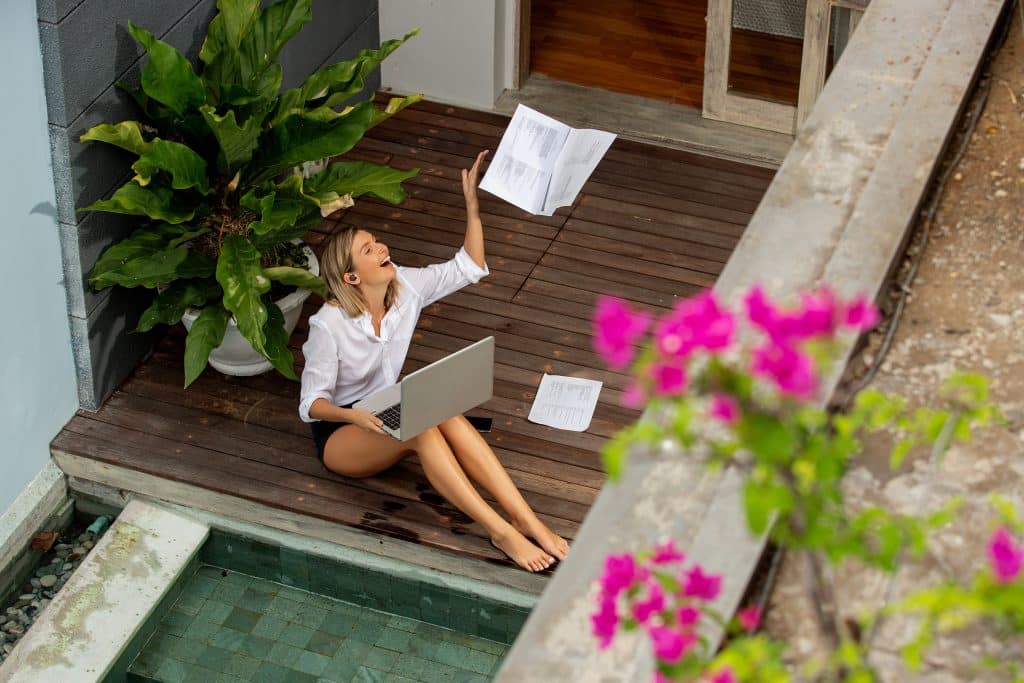
As mentioned at the beginning of this guide, if you have an Occupation Permit visa, you do not need to apply for a work permit as this visa is a ‘two-in-one’ visa.
In addition, the Mauritian authorities have passed a law that now allows employees to enjoy a four-day working week, which is ideal for a good work-life balance.
Taxation in Mauritius
Let’s be clear: Mauritius is not a tax haven, but the country does offer some significant tax benefits. To name a few:
- A tax rate of 15%
- No property tax
- No taxes on dividends
- A double taxation agreement
Daily life in Mauritius
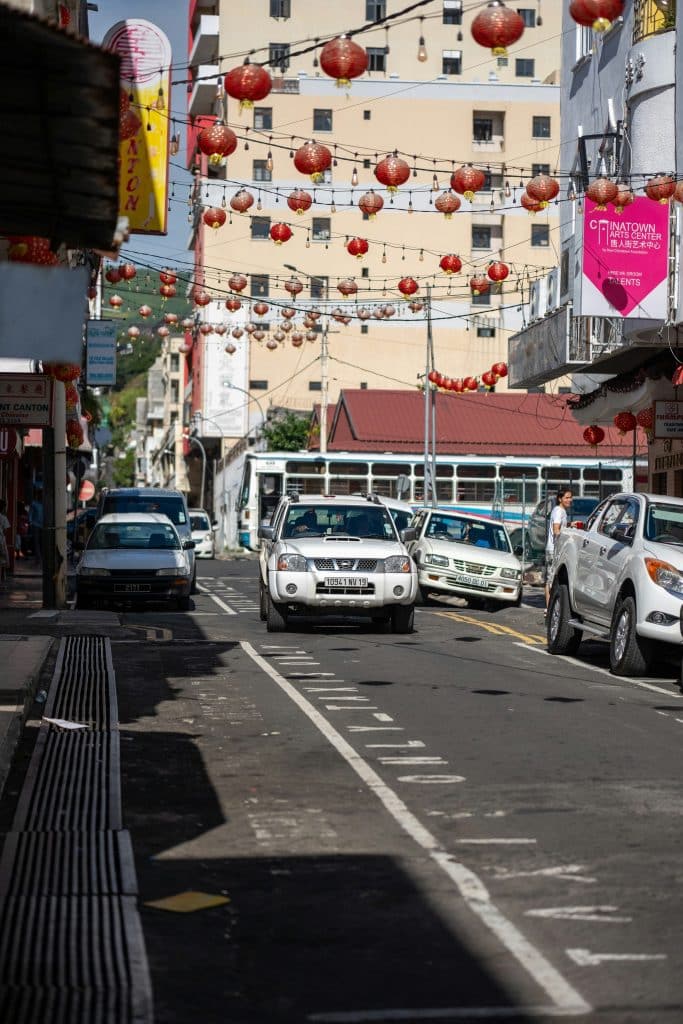
Getting around
There are two main modes of public transport: buses and the metro express. Buses serve both urban and rural areas throughout the country. To plan your itinerary, we recommend visiting the Mauritius Buses and National Land Transport Authority websites.
The metro express is a newer form of public transport that mainly serves around 20 stations between Port Louis and Curepipe.
Cars remain the easiest way to get around the country. However, be aware that secondary roads can sometimes (often) have potholes.
Schools in Mauritius
Although the Mauritian education system is well structured, most expats choose to send their children to private international, Anglo-Saxon or French schools. Students become bilingual or even trilingual from an early age.
Here are some private schools to consider:
- École du Nord
- Lycée de Mascareignes
- International Preparatory School
- Greencoast International School
Mauritian friendliness is no myth
According to general opinion, Mauritians are known for being friendly, and they certainly live up to this reputation! Society is very tolerant and most of the population supports community living.
Although English is the official language of the country, we recommend learning a few phrases in Creole. This can bring you even closer to the local population and help you settle in more easily.

The growing number of expatriates also facilitates social and professional exchanges, whether you want to build a network of contacts or interact with other foreign nationals.
Health in Mauritius
Health is a key consideration when choosing to move abroad. In Mauritius, the social security system is relatively well developed, but it has its limitations. Although care is free in public facilities, waiting times can be quite long and medical equipment is sometimes outdated.
Private clinics and hospitals, available throughout the country, compensate for these shortcomings. They offer state-of-the-art facilities for high-quality care.
As a result, many expatriates choose to take out international private health insurance as soon as they arrive on the island.
At Foyer Global Health, we specialise in health cover for expatriates. We offer you and your family:
- Comprehensive cover
- High-quality care at the private facility of your choice
- Insurance valid in Mauritius, in your country of origin and anywhere else in the world
- Teleconsultations available for a second medical opinion
- Additional paramedical services, such as mental health coaching and a ‘Get Fit’ programme to help you cope with the stress of living abroad!
Moving to Mauritius or Reunion Island: which to choose?
Only 230 km separate these two islands, both of which offer an idyllic lifestyle, causing many expatriates to hesitate between them. However, Mauritius and Réunion are different in several ways.
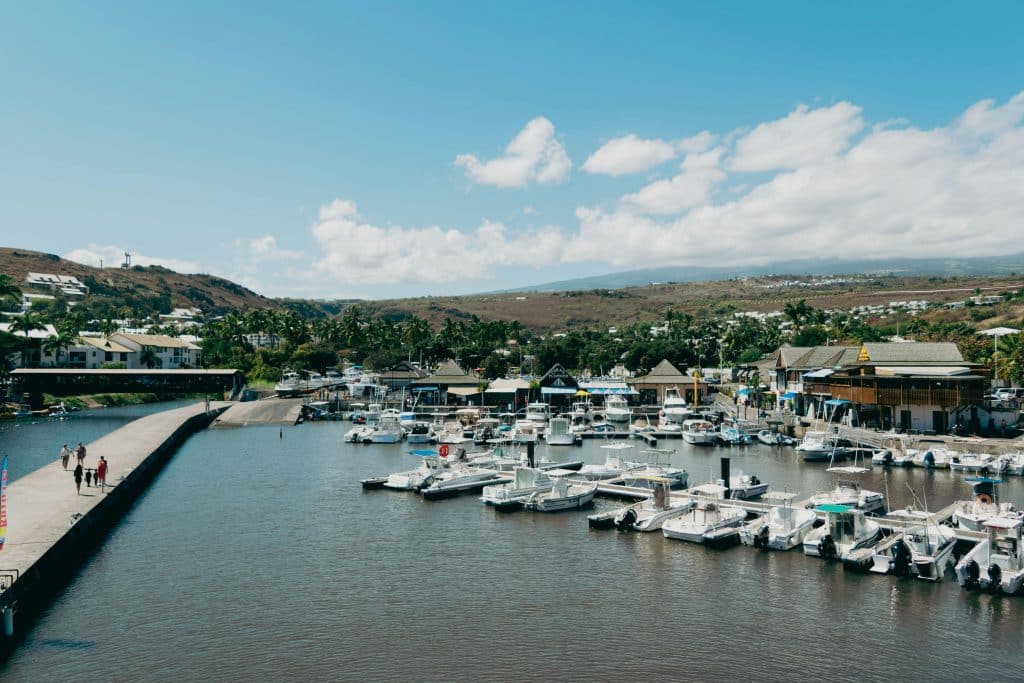
First of all, Mauritius is an independent country. Moving there therefore involves specific formalities, as we have seen above. Reunion, on the other hand, is a French overseas department. For French citizens, moving there is therefore straightforward, as no special administrative procedures are required (no residence permit or work permit).
European nationals also have a slight advantage: they can settle in Réunion for up to three months without a visa. However, a visa is required for longer stays, as the island is not part of the Schengen area.
The cost of living also differs between the two islands. On average, living in Réunion is more expensive, with the cost of living in Saint-Denis around 43% higher than in Port Louis.
On the other hand, salaries are also higher. In Saint-Denis, the average salary exceeds €1,800/£1,500, compared to around €800/£670 in Port Louis. Purchasing power is therefore higher, but it should be noted that expatriates living in Mauritius generally enjoy more favourable salary conditions than locals.
Here is a brief comparison table of some key factors:
| Criterion | Mauritius | Reunion |
|---|---|---|
| Official language | English (but a large part of the population speaks French and Creole) | French |
| Price of a one-bedroom apartment in the city centre | 380 € | 725 € |
| Beaches | 150 km of beaches along the coast | 30 km of beaches and 22 km of lagoon |
| Things to do | Beaches, water sports, nature trips, and more | Much wider range of outdoor activities, especially hiking! |
| Healthcare | Often based on outdated infrastructure, especially in the public sector | High-quality medical facilities in both the public and private sectors |
We recommend choosing based on your professional activity (where the best opportunities are), but also and above all after visiting both islands. Only by spending time in each will you see which one you prefer.
